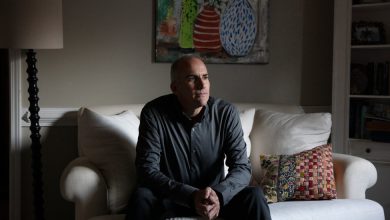Alabama Governor Signs Ban on Transition Care for Transgender Youth

Gov. Kay Ivey of Alabama signed legislation on Friday that prevents medical professionals from providing care that aids transgender young people in transitioning, adopting some of the country’s most restrictive measures and threatening doctors and nurses with up to 10 years in prison.
Ms. Ivey, a Republican, also approved legislation that requires students to use restrooms and locker rooms for the sex listed on their original birth certificates. It also limits classroom discussions on gender and sexual orientation — a version of what critics call a “Don’t Say Gay” measure that goes further than some other states.
The legislation is part of a flurry of bills introduced across the country as conservative lawmakers have focused their attention on transgender people and other L.G.B.T.Q. issues, including limiting what doctors call gender-affirming care and barring some transgender students from participating in school sports.
“I believe very strongly that if the Good Lord made you a boy, you are a boy, and if he made you a girl, you are a girl,” Ms. Ivey said in a statement after signing the bills. “We should especially protect our children from these radical, life-altering drugs and surgeries when they are at such a vulnerable stage in life.”
The medical care law, which was passed by legislators on Thursday, has been condemned by the transgender community as well as the medical establishment. Opponents contend that the law, instead of protecting children as its supporters claim, targets and endangers young people who are already uniquely vulnerable. The American Medical Association has assailed such measures as government intrusion, blocking transition-related care that is considered medically necessary.
Legal challenges are being prepared by the Transgender Law Center and the American Civil Liberties Union, among other groups, to stop the legislation from being carried out. Last year, a federal court blocked Arkansas from enforcing a similar law.
“We’ll see the state in court and we feel extremely confident that we will get a preliminary injunction before the law goes into effect on May 8,” said Kaitlin Welborn, a lawyer with the A.C.L.U. of Alabama. She added that transgender children in the state knew they have access to their normal health care and should continue to seek it out in the interim.
Although other states have also taken steps to limit medical care for transgender youth, Alabama has adopted a law that goes further than the others by making it a felony to prescribe hormones or puberty-blocking medication or perform gender-affirming surgeries. It also would not allow educators and school nurses to “encourage or coerce” students to withhold from their parents “the fact that the minor’s perception of his or her gender or sex is inconsistent with the minor’s sex.”
In the legislation, called the Vulnerable Child Compassion and Protection Act, its sponsors said that “minors, and often their parents, are unable to comprehend and fully appreciate the risk and life implications, including permanent sterility, that result from the use of puberty blockers, cross-sex hormones, and surgical procedures.”
On the legislation regulating the use of restroom and locker rooms, Ms. Ivey said in her statement that “here in Alabama, men use the men’s room, and ladies use the ladies’ room — it’s really a no-brainer.”
The Push to Restrict Rights for Young Transgender People
A growing trend. Measures that could tranform the lives of young transgender people are at the center of heated political debate across America. Here is how some states are approaching the subject:
Texas. In October, Texas became the most populous state to bar transgender girls from participating in girls’ sports at public schools. Gov. Greg Abbott also issued an order to conduct child abuse investigations against those providing certain medical treatments to transgender children. A court ruling later stopped the order from being applied.
Arkansas. Last April, Arkansas enacted a law, the first of its kind in the nation, barring physicians from administering hormones or puberty blockers to transgender people younger than 18. It is now on pause because of a legal challenge from the American Civil Liberties Union.
Indiana. Gov. Eric Holcomb, a Republican, vetoed a bill that would have banned transgender girls from competing in school-sanctioned girls’ sports. The governor said the bill, known as H.E.A. 1041, would likely have been challenged in court.
Utah. A day after the decision in Indiana, Gov. Spencer Cox, also a Republican, vetoed a similar bill that would have barred young transgender athletes from participating in girls’ sports. Republican legislators subsequently voted to override the veto and enacted the legislation.
Kentucky. Gov. Andy Beshear, a Democrat, vetoed a bill that would prevent transgender female athletes from playing on girls’ sports teams in middle school and high school. The State Legislature, which is dominated by Republicans, is expected to override the veto.
Alabama. Lawmakers approved a ban on medical care for transgender youth who are transitioning. Legislators also advanced legislation requiring students to use restrooms and locker rooms in line with the sex listed on their original birth certificates; the bill would also restrict discussions on gender and sexuality in kindergarten through fifth grade.
Other states. Since 2019, lawmakers have introduced bills seeking to bar transgender youths from joining school sports teams consistent with their gender identities. They have become law in Alabama, Arkansas, Florida, Idaho, Iowa, Mississippi, Montana, South Dakota, Tennessee, Texas and West Virginia.
She also criticized the description of the amendment that limits classroom discussion as a “Don’t Say Gay” measure. “That is misleading, false and just plain wrong,” she said. “We don’t need to be teaching young children about sex. We are talking about 5-year-olds for crying out loud. We need to focus on what matters — core instruction like reading and math.”
Taken together, activists and advocates said these laws endangered transgender young people, standing in the way of critical care and inhibiting their ability to express their identity. They added that they also amplify harmful rhetoric that threatens to further marginalize a population that has a heightened risk of suicide. The A.C.L.U. of Alabama said the legislation fit into a “systematic and growing attack on trans people, particularly trans youth, in all aspects of life.”
“The way to reduce harm to trans youth is to provide them with gender-affirming health care where it is medically indicated,” Chase Strangio of the A.C.L.U.’s L.G.B.T.Q. & H.I.V. Project said in a statement. “This bill takes that lifesaving treatment option off the table and makes it a felony.
“Moving forward with this bill will be deadly for trans youth, push doctors out of a state that has a shortage of medical providers, hurt Alabama’s economy, and subject the state to costly litigation.”
Tariro Mzezewa contributed reporting.





